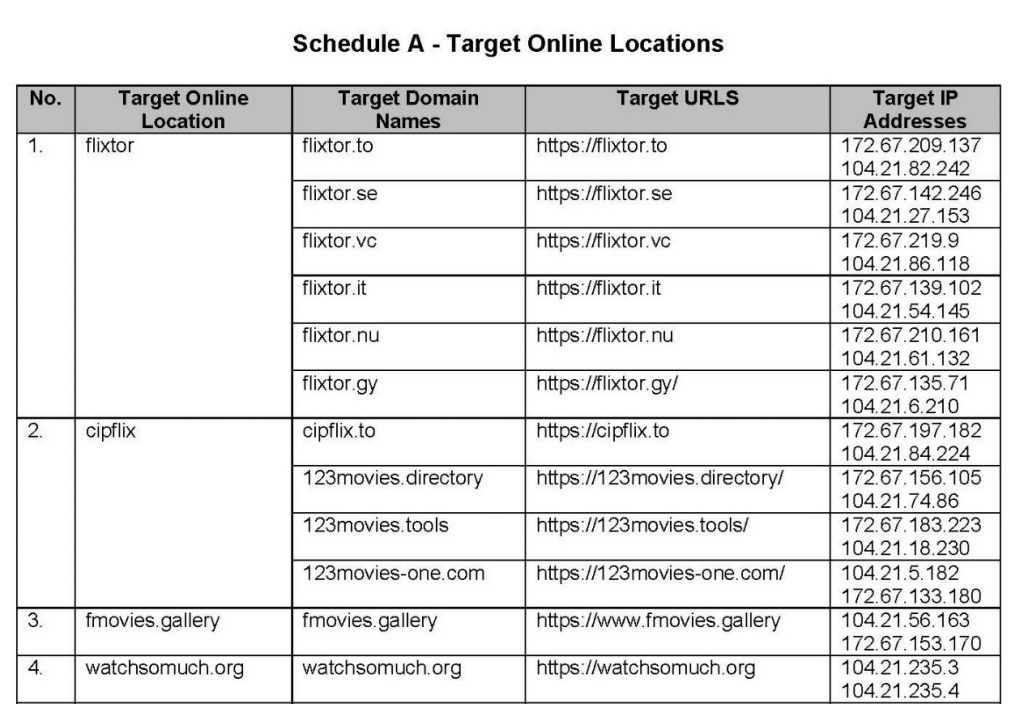Until now, pirates receiving site-blocking requests from rights-holders have been able to sidestep takedown orders by changing their names to something similar to the old one. In December 2021, Australia’s Federal Court granted a judgment that allows applicants to request pirate site blocking by name, brand or by the identity of its operator.
53 access providers, including Telstra, Vodafone, multiple divisions of Optus, Primus, Eftel, and other Australian carriers were ordered to disable their online accounts and ‘Target Online Locations’ of 63 infringing Australia-based Web sites within 15 business days. Many of the sites redirect to well-known hosting sites.
In addition to Roadshow Pictures and Village Roadshow Films, plaintiffs included Disney, Paramount, Columbia, Universal, Warner Bros., Netflix and others.

Read a summary article at Content Cafe (Creative Content Australia)
Read the ruling: Roadshow Films Pty Ltd v Telstra Corporation Ltd [2021] FCA 1588, which lists the 63 infringing sites.
Why it matters
In addition to setting a precedent that is likely to influence regulations in other countries and regions, this ruling might also be a reflection of how the awareness of piracy and antipiracy have begun to mature, just as happens with any other situation that has a technical solution.
For example, in the early days of video by the Telcos, video was the domain of engineers: how to get all those bits down a “skinny” DSL line. Telco video only grew as a business when Telcos saw cable operators stealing their customers with faster broadband and realized that their answer had to be multichannel pay TV (also known in technical terms as IP-multicast variety and IGMP snooping, but not identified that way in the boardroom).
In this case, the judge’s ruling was made in terms of ‘plain English’ and the business language of brand identity, rather than domain names or IP addresses. Plain language has nuance but its use in this situation gives it broader reach, and infringers are less able to obfuscate themselves by hiding behind technological terminology.












